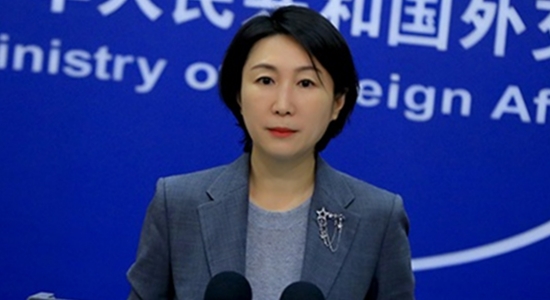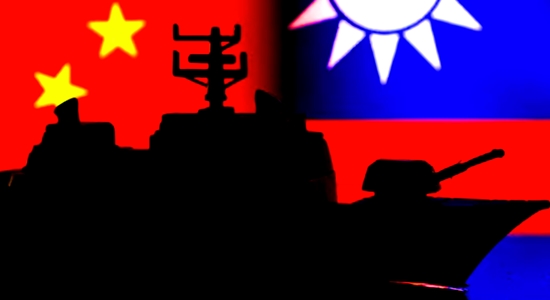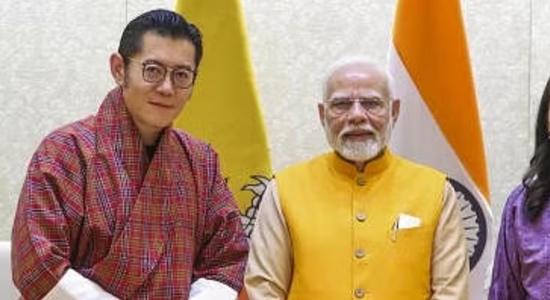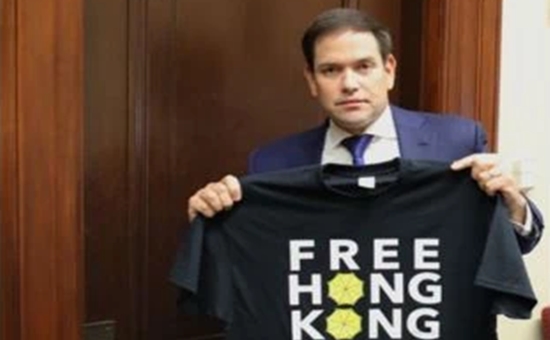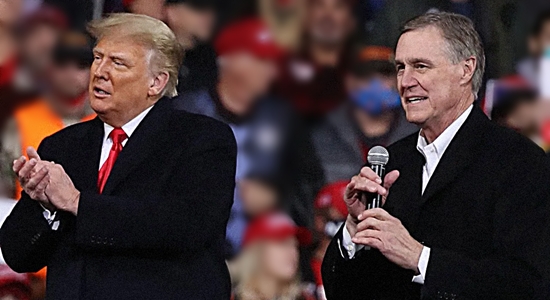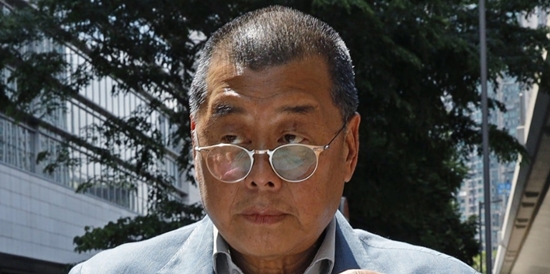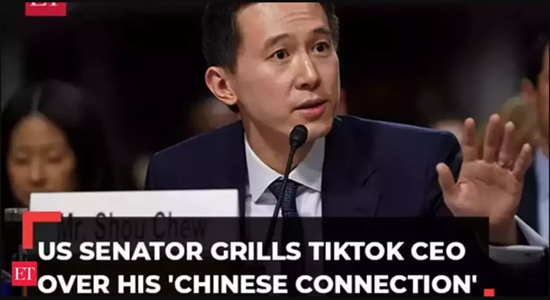
A recent court decision has gone against TikTok, the slick short-video reservoir of Chinese Communist Party propaganda and instrument of CCP surveillance (“Appeals court upholds TikTok ban, declining to block law that would force sale,” CBS News, December 6, 2024).
The U.S. Supreme Court will probably hear the case next.
Petition denied
TikTok and its owner, the Beijing firm ByteDance, have been trying to overturn federal legislation requiring that TikTok be either sold or banned in the United States. The Protecting Americans From Foreign Adversary Controlled Applications Act was signed into law in April 2024.
A panel of three judges from the U.S. Court of Appeals for the District of Columbia Circuit unanimously sided with the Justice Department in declining to review the petition for relief [according to which] the law is constitutional.
“We conclude the portions of the Act the petitioners have standing to challenge, that is the provisions concerning TikTok and its related entities, survive constitutional scrutiny,” Senior Judge Douglas Ginsburg wrote in the majority opinion. “We therefore deny the petitions.”…
The Chinese government vowed to block the sale of TikTok’s algorithm, which tailors content recommendations to each user. A new buyer would be forced to rebuild the algorithm that powers the app. Lawyers for TikTok and ByteDance said “such a fundamental rearchitecting is not remotely feasible” under the restrictions within the legislation….
Attorney Jeffrey Fisher, who represents TikTok creators, compared the restrictions on TikTok to the U.S. government hypothetically banning bookstores from selling books written by foreign authors in conjunction with a foreign government.
“We’re not talking about banning Tocqueville in the United States,” [Judge Neomi Rao] countered. “We’re talking about a determination by the political branches that there’s a foreign adversary that is potentially exercising covert influence in the United States. Very different.”…
Justice Department lawyer Daniel Tenny said the data on Americans that could be collected through the app “would be quite valuable to a foreign adversary if it were trying to approach an American to try to have them be an intelligence asset.” Tenny also spoke about the risk of content manipulation by China.
In its commentary on the case, Reclaim the Net refers to the Justice Department’s reference to “unspecified past actions by TikTok and ByteDance in response to Chinese government demands.”
Public facts
But the nature of some of TikTok’s Party-serving actions has been indicated in publicly available testimony and research.
For example, according to an April 2024 article in Fortune:
Evan Turner, who worked at TikTok as a senior data scientist from April to September in 2022, said TikTok concealed the involvement of its Chinese owner during his employment. When hired, Turner initially reported to a ByteDance executive in Beijing. But later that year, after the company announced a major initiative to store TikTok’s U.S. user data only in the U.S., Turner was reassigned—on paper, at least—to an American manager in Seattle….
Turner says he never met with the Seattle-based manager. Instead, Turner had weekly check-ins lasting less than seven minutes with the Beijing-based ByteDance executive. In these meetings, Turner says he merely told the executive how far along he was in completing assigned tasks—and nothing else…..
Nearly every 14 days, as part of Turner’s job throughout 2022, he emailed spreadsheets filled with data for hundreds of thousands of U.S. users to ByteDance workers in Beijing. That data included names, email addresses, IP addresses, and geographic and demographic information of TikTok U.S. users, he says…. It all took place after the company had started its initiative to keep sensitive U.S. user data in the U.S., and only available to U.S. workers.
“I literally worked on a project that gave U.S. data to China,” Turner says.
With respect to data scavenging by an enemy government responsible for some of the biggest cyberattacks ever on the American government and American companies, Turner’s testimony adds up to more than mere hints of smoke that may mean fire.
Article 7
We must also consider items like China’s 2017 National Intelligence Law, which, Kara Frederick reports, “compels private entities and individuals to cooperate with ‘state intelligence work.’ Specifically, Article 7 of this law declares that ‘any organization or citizen shall support, assist, and cooperate with state intelligence work according to the law.’ ” The Chinese government requires Chinese firms to be quiet about this assistance.
Plus, even if we assume for the sake of erroneous argument that TikTok officials are inclined to resist CCP demands, the demands of the same CCP that regularly jails people who resist its demands, we must still consider the fact that “Chinese officials—former and current—are embedded in TikTok’s parent company and involved in the company’s inner workings. In April 2021, the Chinese government acquired a percent stake in ByteDance’s main domestic subsidiary and the board seat that came along with it.”
With respect to TikTok as agent of CCP propaganda, we have, for a start, an NCRI study finding strong evidence “that TikTok systematically promotes or demotes content on the basis of whether it is aligned with or opposed to the interests of the Chinese government.”
We also have the above CBS News report, which tells us that the Chinese government, which means the Chinese Communist Party, “vowed to block the sale of TikTok’s algorithm….”
Perhaps the U.S. government neglected in court to specify all it knows about the history of TikTok’s conduct. But none of the above evidence and details are buried in secret U.S. government intelligence files.
The free-speech questions are thorny. Granted, the U.S. legislation to block TikTok is not carefully delimited. It should be.
A weapon
But no discussion can proceed without acknowledging that TikTok is a weapon of the Chinese Communist Party.
Would the U.S. government have a right in time of war to interrupt the speech of enemy agents present in the United States who are intent on dropping propaganda flyers over inhabited areas?
What about the right of Americans on the ground to read the flyers? Would Americans be victims of censorship if the enemy pilots dropping the flyers were thwarted? What if, whenever an American picked up one of the flyers, the name, email address, IP address, and other information about that person were transmitted to the enemy?
The U.S. and China are not formally at war. We’re in a gray zone. But we hurt our chances of preventing a slide into the black zone, or of prevailing if we end up there, if we allow China’s constant testing and attacks and preparations for further and expanded attacks to proceed unchallenged.
Also see:
United States Court of Appeals: TikTok Inc. and ByteDance Ltd. v Merrick B. Garland
StopTheChinazis.org: “Response to Paul Jacob About TikTok and His Further Thoughts“
StopTheChinazis.org: “TikTok Only Pretends to Hide Data on U.S. Users From ByteDance and China”
StopTheChinazis.org: “TikTok Is Pretty Much a Chinese Communist Party App, Study Confirms“
Network Contagion Research Institute: “How TikTok’s Global Platform Anomalies Align with the Chinese Communist Party’s Geostrategic Objectives“
Heritage.org: “TikTok Generation: A CCP Official in Every Pocket“
Racket News: “Why the TikTok Ban Is So Dangerous”
